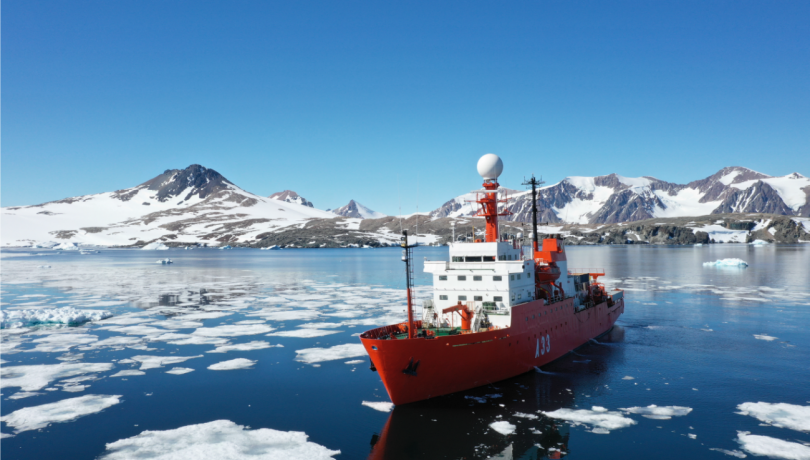Researchers from the Institut de Ciències del Mar (ICM-CSIC) of Barcelona lead an international multidisciplinary team that will travel the Antarctic waters for four weeks.

An international team of researchers will travel through Antarctica until March 21 with the aim of delving into the study of the role of marine aerosols in the regulation of the Earth's climate. Around thirty researchers from 14 different nationalities and 4 continents will participate in the expedition, which will be carried out on board the oceanographic vessel Hespérides.
The results of the expedition, made up of a multidisciplinary group of chemists, physicists, biologists and a wide variety of technologists, will serve to obtain a global picture of the interactions between the ocean, ice and atmosphere around Antarctica, which is expected to contribute to improve the climate models on which polar climate predictions are based.
The Institut de Ciències del Mar (ICM-CSIC) de Barcelona, with funding from the Agencia Estatal de Investigación, will lead the campaign, conducted within the framework of the international Polar-Change project. The team will focus on the study of the sources, composition and dynamics of marine aerosols in Antarctic environments with the aim of relating the emission processes of these aerosols to the polar marine microorganisms that inhabit the ocean and ice.
"We will sail around the Antarctic Peninsula and move as far north as the Weddell Sea to investigate how the particles contained in the air samples are formed. To do this, we have designed a series of experimental chambers in which we will reproduce the processes of aerosol generation derived from wave breaking," explains the ICM-CSIC researcher Manuel Dall'Osto, the campaign’s scientific leader.
The role of marine aerosols
Aerosols, tiny particles in suspension that can be of both natural and anthropogenic origin, play a very important role in regulating the Earth's climate by acting as condensation nuclei for the water droplets that will eventually form clouds. In turn, they determine the solar radiation that reaches the surface of the planet, since they partially reflect the sun's rays.
It is therefore necessary to delve deeper into both the chemical and biological composition of water and the processes of cloud formation, especially at a time when the effects of climate change are having an accelerated impact on the polar areas. In fact, in recent years the melting of the polar areas is occurring at significantly higher rates than expected. However, there is still little evidence on the impact of warming on the microorganisms that inhabit the water and ice, and on how changes in polar marine ecosystems affect the climate itself.
In this regard, ICM-CSIC researcher Rafel Simó, coordinator of the Polar-Change project, points out that "the increasing melting of the Antarctic Ocean during the austral summer, caused by climate change, may favor the emission of cloud-forming substances, a process that has so far been little taken into account in polar climate studies".